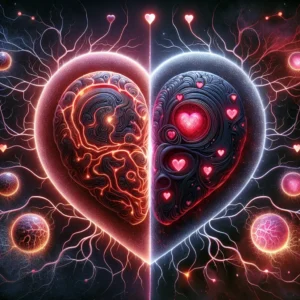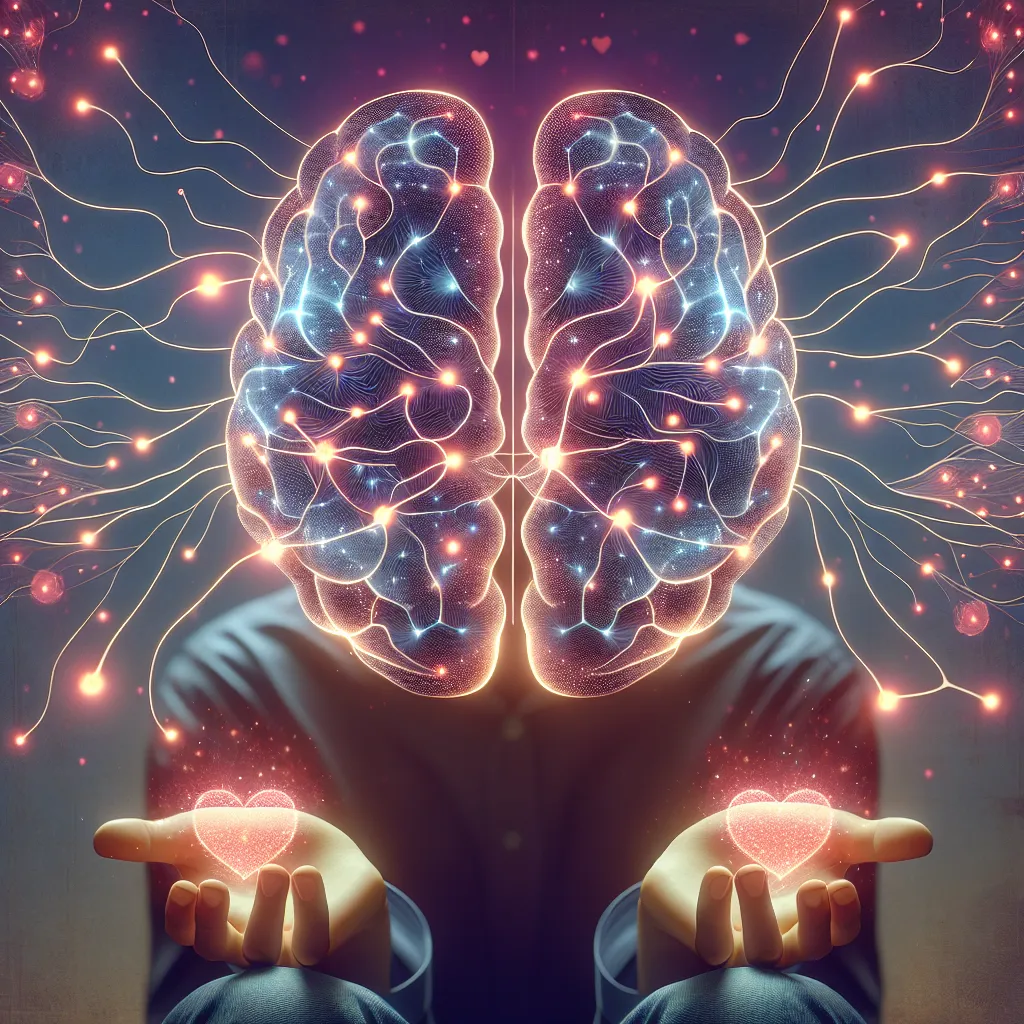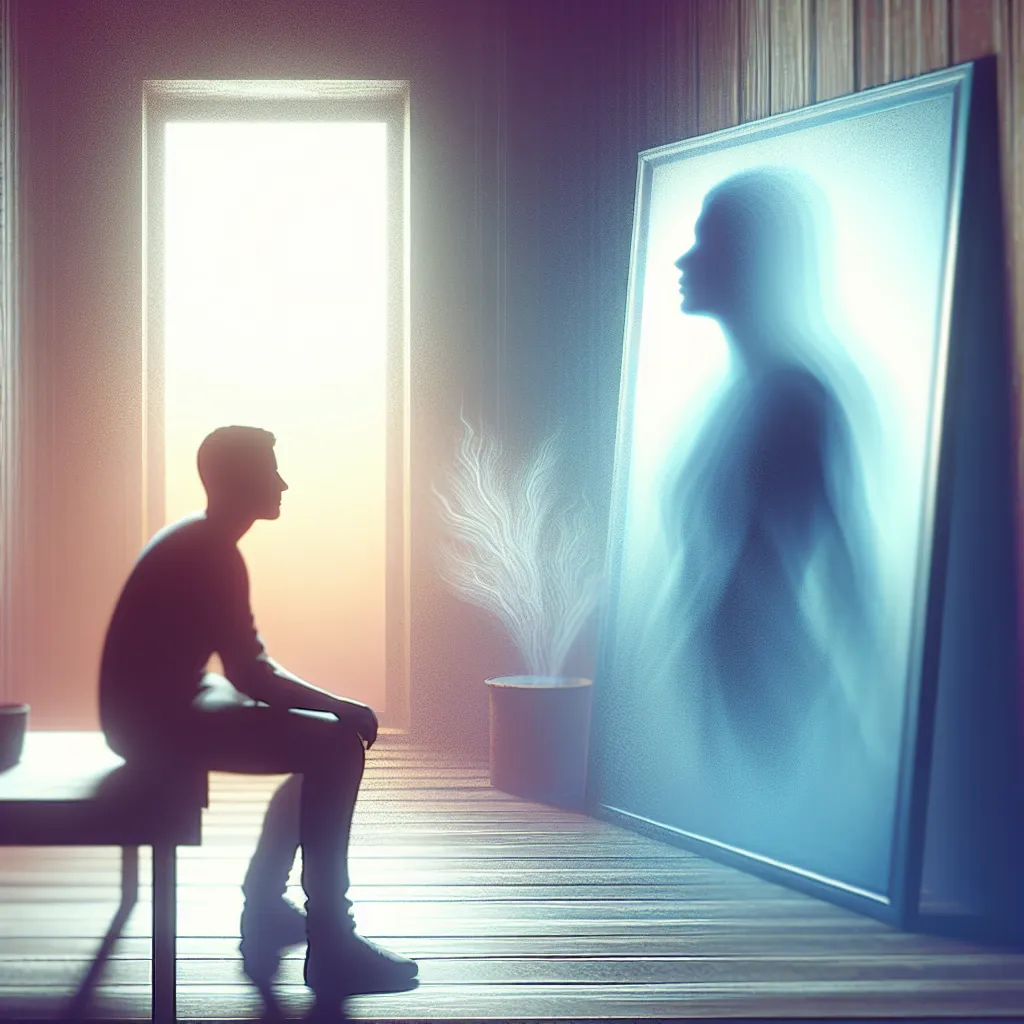Hello, relationship seekers!
Today, we’re delving into the fascinating realm of emotions, specifically focusing on the question: “Why does unrequited love trigger the brain’s pain circuits more intensely than mutual rejection?”
The Direct Answer
Unrequited love triggers the brain’s pain circuits more intensely than mutual rejection primarily because it involves a more complex mix of intense emotions—such as longing, sadness, and disappointment—along with a strong sense of rejection. This emotional cocktail tends to activate areas of the brain associated with physical pain and reward, leading to a more intense experience of pain than mutual rejection. Mutual rejection, while still painful, is typically associated with feelings of disappointment and loss, but without the same level of longing and psychological distress experienced in unrequited love.
1. Understanding the Neurology of Love and Rejection
Let’s begin by exploring the neurological aspects of love and rejection, a fundamental base for understanding why unrequited love is so intensely painful.
A. The Neurochemistry of Love
Love, a complex and all-encompassing emotion, activates numerous areas of the brain:
– Expert Perspectives: Neuroscientists like Dr. Helen Fisher assert that love activates areas of the brain associated with reward and pleasure, such as the ventral tegmental area and caudate nucleus, which are rich in dopamine, a neurotransmitter linked to pleasure and reward.
– Psychological Research: Studies, such as one published in the Journal of Neurophysiology, have shown that these same brain regions light up during the agony of rejection, indicating a close link between love and pain.
– Real-World Examples: In real-world scenarios, people in love often exhibit symptoms akin to addiction, such as obsession, mood swings, and emotional dependence. This parallels the neurological patterns seen in drug addiction.
B. The Brain and Rejection
Rejection, whether mutual or not, triggers pain circuits in the brain:
– Historical Context: Historically, being rejected by a group could mean death, so our brains developed strong negative responses to rejection.
– Common Challenges: People often struggle with feelings of inadequacy and low self-esteem after rejection, which can exacerbate the emotional pain.
– Practical Applications: Understanding that rejection triggers physical pain can help one develop coping strategies, such as self-care routines and cognitive reframing exercises.
C. Unrequited Love and the Brain
Unrequited love, a complex blend of love and rejection, significantly affects the brain:
– Expert Perspectives: Experts like Dr. Lucy Brown suggest that unrequited love triggers the reward system and pain circuits simultaneously, leading to a uniquely intense and painful experience.
– Psychological Research: Research published in the Journal of Neurophysiology supports this, showing significant activity in both reward and pain areas during unrequited love.
– Real-World Examples: People experiencing unrequited love often report feelings of intense longing and pain, reflecting this dual activation of reward and pain circuits.
2. The Psychological Impact of Unrequited Love and Mutual Rejection
Understanding the psychological impact of both unrequited love and mutual rejection provides another dimension to our exploration.
A. The Psychology of Unrequited Love
Unrequited love brings about intense emotional responses:
1. Heightened Longing: Unrequited love often intensifies feelings of desire, a phenomenon called “frustration-attraction.”
2. Lowered Self-Esteem: Being unloved by a desired partner can lead to feelings of unworthiness.
3. Obsession: Unreturned affection can lead to obsessive thoughts.
4. Heightened Sensitivity to Rejection: Individuals experiencing unrequited love are often more sensitive to other forms of rejection.
B. The Psychology of Mutual Rejection
Mutual rejection, though painful, lacks the intensity of unrequited love:
– Loss and Grief: Mutual rejection often involves feelings of loss and grief, without the added complexity of longing and obsession found in unrequited love.
– Self-Esteem: Mutual rejection can impact self-esteem, but usually to a lesser extent than unrequited love.
– Closure: Mutual rejection often provides a sense of closure, which can buffer the psychological impact.
C. Comparing the Two
Contrasting unrequited love and mutual rejection highlights the psychological differences:
– Intensity of Emotions: Unrequited love typically involves more intense emotions, leading to greater psychological distress.
– Impact on Self-Perception: Unrequited love often deals a greater blow to self-esteem and self-perception than mutual rejection.
– Lack of Closure: Unrequited love often lacks closure, which can prolong and intensify the pain.
3. Coping Mechanisms and Strategies
Developing effective coping mechanisms is crucial to navigate the pain of unrequited love and mutual rejection.
A. Strategies for Unrequited Love
Handling unrequited love involves specific strategies:
– Self-Care: Engaging in self-care activities, such as exercise and hobbies, can distract from the pain and promote well-being.
– Social Support: Leaning on friends and family for support can help manage feelings of rejection and loneliness.
– Professional Help: If the pain becomes overwhelming, seeking help from a mental health professional can be beneficial.
B. Strategies for Mutual Rejection
Coping with mutual rejection involves similar, but slightly different strategies:
– Grief Processing: Allowing oneself to grieve the loss of the relationship can aid in emotional healing.
– Positive Self-Talk: Reinforcing one’s worth and value independently of the relationship can bolster self-esteem.
– Closure Activities: Engaging in activities that bring a sense of closure can help one move forward.
C. Future Possibilities
Over time, the intense pain of unrequited love or mutual rejection will lessen:
– Time Heals: As time passes, the intensity of the pain will typically decrease.
– Learning and Growth: These painful experiences can provide valuable lessons and opportunities for personal growth.
– Future Relationships: These experiences can also provide insights to help navigate future relationships more effectively.
4. Additional Context and Considerations
While we’ve covered the main points, it’s also essential to consider broader factors impacting the experience of unrequited love and mutual rejection, such as cultural expectations, personal history, and mental health status, which can all contribute to the intensity of pain experienced.
Conclusion: The Definitive Answer
Based on our exploration:
– Neurological Factors: Unrequited love triggers intense pain due to simultaneous activation of the brain’s reward and pain circuits.
– Psychological Factors: The psychological impact of unrequited love is typically more severe due to heightened longing, lower self-esteem, and a lack of closure.
– Coping Strategies: Effective coping strategies, such as self-care, social support, and professional help, can aid in managing the pain of both unrequited love and mutual rejection.
In conclusion, unrequited love triggers the brain’s pain circuits more intensely than mutual rejection due to a combination of neurological and psychological factors. Understanding this can help individuals better cope with these experiences and seek appropriate support when needed.
This exploration not only provides insight into the mystery of love and rejection but also serves as a reminder of our shared human experience. As we navigate the complexities of relationships, it’s comforting to know that science can shed some light on our journey.



